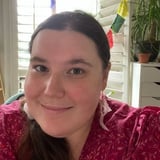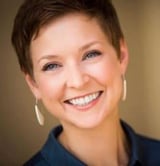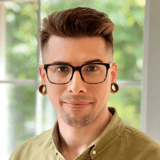Summary
In response to the existing health equity gap for communities of color, which the pandemic exacerbated, this collaboration tackled the challenge of increasing COVID-19 vaccination rates and improving health equity among Latina/x/o individuals of childbearing age in southern Arizona. Partnering with the local health department and a diverse Community of Practice, our team employed a Human-Centered Design approach to co-create and pilot solutions that address critical health needs and strengthen patient-practitioner trust. Our year-long design process led to the successful implementation of a community and a clinical pilot that enhanced healthcare navigation and engagement for our primary users, with early outcomes showing positive impacts on the local healthcare system. This experience underscores the power of creating space for cross-disciplinary collaboration and offers valuable insights into integrating equity-focused practices within service design. Attendees will learn about the effectiveness of coalition-based approaches and strategies for broadening service design practices to address complex health equity issues affecting diverse, low income communities.
Key Insights
-
•
Centering equity requires compensating community members fairly, overcoming institutional red tape and tax eligibility concerns.
-
•
A deeply engaged Community of Practice (COP) including trusted local organizations accelerates trust and relevance in health projects.
-
•
Human-centered design phases benefit from low-fidelity prototypes and storyboards to empower meaningful community feedback.
-
•
Involving community partners in decision-making from problem definition to piloting deepens participation and ownership.
-
•
Bringing jargon-free language and clear timelines helps non-designers navigate the ambiguity inherent in human-centered design.
-
•
Pilots integrated authentic health promotora workers from the Latina community to improve patient engagement and follow-up.
-
•
Dual pilots addressed clinical workflow improvements and community healthcare navigation challenges separately but complementarily.
-
•
Sustained organizational change included embedding health promotion roles permanently and expanding HCD training programs locally.
-
•
Flexible innovation must be balanced with realistic expectations about partner capacity to avoid overburdening small organizations.
-
•
Measuring impact combined qualitative interviews and quantitative surveys administered by trusted community health workers.
Notable Quotes
"We decided with the COP to view our budget as a moral document."
"Community-centered design allowed us to uplift the value of lived experience and embed it directly into budgeting."
"The COP became the beating heart of our project, enabling quick credibility and community excitement."
"The more participatory the practices, the deeper and more intentional the engagement needs to be."
"We actively reduced jargon to make our process accessible for non-designers."
"Prototypes were very low fidelity because too-high fidelity can intimidate participants and hinder feedback."
"Relinquishing control over implementation empowered community-driven solutions and fostered lasting trust."
"We aimed for a fifth grade reading level to make materials accessible."
"Hiring team members with lived experience was key for authentic engagement and facilitating workshops."
"Federal funding does not provide food for participants, so we had to plan accordingly to make participation irresistible."
Or choose a question:
















More Videos

"Asynchronous communication allows us hours of deep and focused work."
Ana FerreiraDesigning Distributed: Leading Doist’s Fully Remote Design Team in Six Countries
January 8, 2024

"No matter how much we simplify, research isn’t for everyone and that’s perfectly fine."
Roy Opata OlendeHow Zapier Uses ‘All Hands Research’ to Increase Exposure to Users
August 6, 2020

"Designers focus on shipping and don’t have bandwidth for documenting learnings or synthesizing knowledge across products."
Kit Unger Jackie Ho Veevi Rosenstein Vasileios XanthopoulosTheme 2: Discussion
January 8, 2024

"Not growing the team was disheartening but led me to create training for partners to start taking a user-centered approach themselves."
Abbey Smalley Sylas SouzaScaling UX Past the Size of Your Team
January 8, 2024

"Trust erodes very quickly the moment an AI prediction is a little off or wrong."
Helen ArmstrongAugment the Human. Interrogate the System.
June 7, 2023

"Great stories travel through organizations freely when they connect to what really moves and motivates people."
Bas Raijmakers, PhD (RCA) Charley Scull Prabhas PokharelWhat Design Research can Learn from Documentary Filmmaking
March 11, 2022

"Sometimes with kids, you just have to get artifactual data or creative outputs because they can’t always articulate."
Mila Kuznetsova Lucy DentonHow Lessons Learned from Our Youngest Users Can Help Us Evolve our Practices
March 9, 2022

"Many of ChatGPT's organizing themes are at the same level as the basic themes, which is confusing and inappropriate."
Weidan LiQualitative synthesis with ChatGPT: Better or worse than human intelligence?
June 4, 2024

"Critique sessions work best when the topic is shaped so answers are relevant and help the process, especially by including business goals."
Christian CrumlishAMA with Christian Crumlish, author of Product Management for UX People
March 24, 2022

















